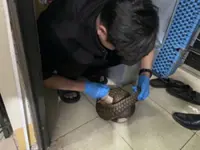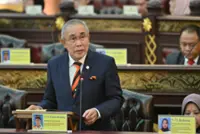KOTA KINABALU: A conservationist is proposing that the government explore “pangolin tourism” to better protect this arguably most poached and trafficked species in the world.
Shavez Cheema, who is the founder of 1StopBorneo Wildlife, said the same was being done with some of Sabah’s most endangered species, including Bornean Pygmy elephants, and there was no reason why the authorities could not try it with pangolins.





